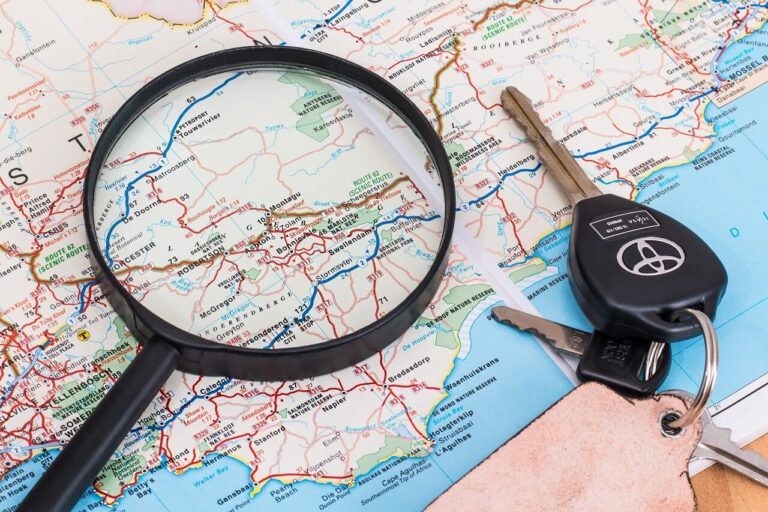A Comprehensive Guide on Travel Insurance

No one likes to think about a travel insurance claim, but it’s a good idea to have one in place before your round-the-world excursion.
You never know when your luggage will get lost, or you’ll be hit by a bus.
The best thing about travel insurance is that it covers more than just medical emergencies and can include all sorts of travel inconveniences, from canceled flights to lost luggage. Whatever might happen while you’re away from home, there’s a policy for that.
There are many considerations when purchasing an insurance policy, and we would be grateful if you could make the best decision for yourself and your family.
Here, we’ll cover: what is travel insurance, how much does it cost, and what does it cover?
Understanding Travel Insurance

First, let’s go over what travel insurance is and what it’s used for. Insurance is a financial product used to cover you against unforeseen events, both large and small. It might help to think of it in a slightly more complex way. We’re all familiar with the concept of buying life insurance.
You might need it to cover the cost of your funeral when you die, but you also might need it if a catastrophic event, such as the loss of a job, leads to a financial crisis. Life insurance also covers many regular expenses that many of us go through, whether we’re rich or not.
Travel insurance differs from life insurance because it is intended for trips in the future. It isn’t a money-saving option for your daily life when you purchase it – the opposite.
What to know when purchasing a policy
Travel insurance has become such a big deal that insurance companies have all sorts of discounts and benefits for taking their coverage.
We’ll outline all the best policies, but the first thing you should do is find the best travel insurance company for you. Always remember, the cheaper it is, the better. You want to be sure you get a good deal on an insurance policy.
There are two ways to get a travel insurance policy: direct and bundled. When looking at a policy, it’s best to look at them as bundles because it’s far easier to compare policies when looking at them this way. If you have questions about any policy, be sure to call and speak to a representative.
How much does it cost?
There are many ways to pay for travel insurance, but one of the most popular methods is to use credit cards. With most credit cards, you can earn travel rewards, and the bonus will be applied to your card statement. There are several programs out there, so we recommend getting a card with a travel rewards plan.
Several travel insurance carriers offer co-branded credit cards and many times, and the insurance company will provide credit to pay for your travel insurance. Just be sure to pay off the card before you go because the credit will be deducted from your balance, which may prevent you from getting the rewards.
You May Also Like: Travelling mistakes you should avoid
What is covered in a standard policy?
Most insurance policies cover accidental damage, theft, and lost luggage. The coverages vary from policy to policy but usually cover the typical hazards you would expect, such as theft or being the victim of a crime.
In some cases, you can get paid if you’re a victim of certain extreme circumstances like child kidnapping or medical or mental health issues in the region.
Understand what is not covered.
You don’t get coverage for the major travel “one-offs,” such as needing to book your trip or make a new flight.
According to Insurance Information Institute (II), these services can’t be covered by travel insurance but are not as common as you may think, according to Insurance Information Institute (II). You can also get coverage for some items such as ground transportation or car rentals, but not all.
Medical emergencies

Travel insurance, or unexpected medical issues, can be major headaches for travelers, even more so if they happen while away from home. Expenses such as emergency room expenses, blood work, and medicines can run thousands of dollars.
Medical evacuation and a trip to the hospital are out of reach for most people. However, insurance can help cover the costs of all of these. For some people, travel insurance is their only option.
Some travel insurance policies do not cover emergencies that the policyholder sets up. Even if you do something to avoid having an emergency, such as renting a car to travel a few hours out of your way before an appointment and leaving a window open in the hotel room, your travel insurance will not cover this.
You May Also Like: Simple steps to start up a Travel Agency
Delayed flights or missed connections
Airline delays, airline policies, and the terms of your policy all play a role in your claim. Many policies include compensation for missed connections and disruptions caused by illness, injury, and family problems. So while you might have to swallow a pricey bill to get home, you might also get a voucher to use on future flights or seats that might have been sold back to their original seats.
Baggage mishaps
Whether you’re delayed by weather, machinery, or an airline’s computer system, you’re likely to be entitled to compensation. Make sure that the policy you’re buying includes provisions for situations like lost luggage or delayed flights. In general, airline policies have rules, and your travel insurance will have regulations of its own.
Canceled flights
It’s no secret that air travel has become significantly more complex since 9/11. There’s now so much more to think about before you leave the security of your home. What time is your flight? Do you want to fly with an airline that doesn’t offer early boarding? Will there be delays?
If you’re lucky enough to be flying to your vacation destination, how long will it take to get to your destination? How long will you have to stay at the airport? All of these factors play into the cost of your travel insurance. You want travel insurance that provides plenty of coverage.
Death in transit
Death is the ultimate pain to the family of the deceased. If a flight is delayed or canceled and the family member is on the flight, they are left with nothing more than a picture and a ticket stub.
Conclusion
Whether you’re heading or traveling to Europe for the first time or want a quick way to protect yourself, travel insurance is a valuable tool you should consider.
We also put together a list of some top travel insurance providers below. This list represents both good and bad options, and we hope to help make your decision a little easier when picking your policy.
Travel insurance companies: Alliant, Selective, Progressive, US Travel Insurance, Aspen Insurance.
Getting Started: If you are traveling internationally, please remember to get a travel health insurance plan before leaving.
While the US Travel Insurance industry is vast and known to many people, they are not one of the very best providers for this coverage.






